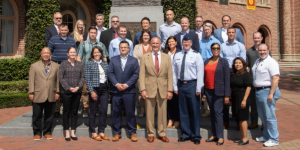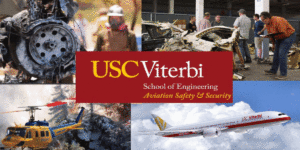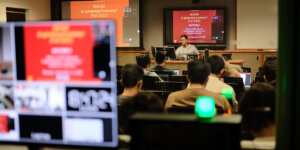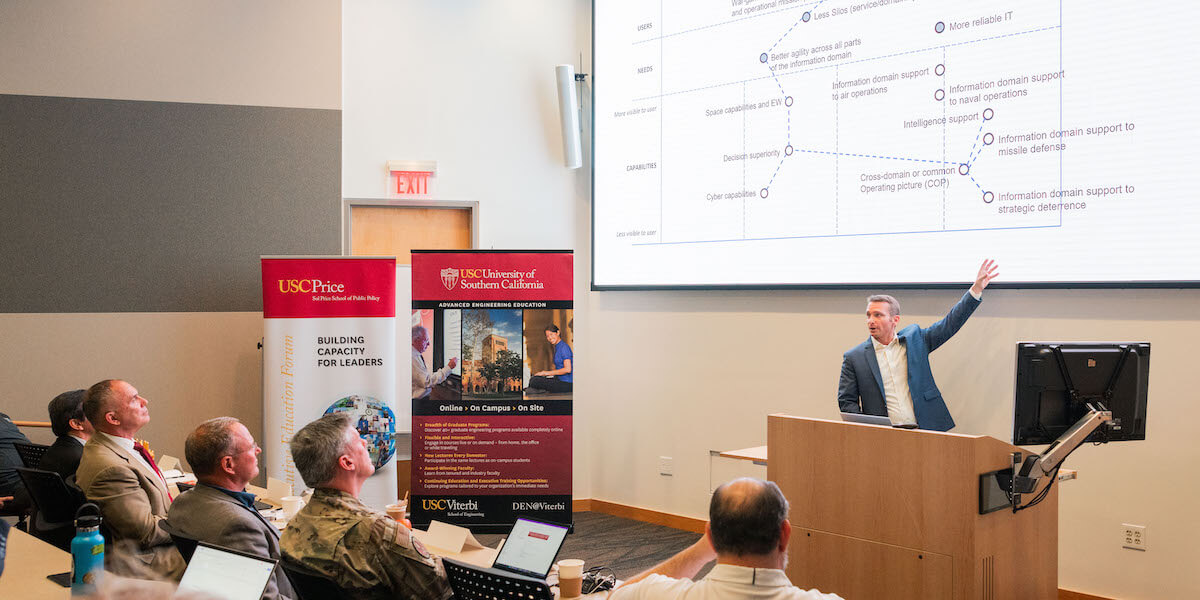
A capstone presentation for the Executive Global Space and Defense Program (Credit: Hannah Benet)
For George Christoph, a lieutenant colonel in the U.S. Air Force stationed in Panama City, Florida, USC’s Executive Global Space and Defense Program couldn’t have been offered at a more relevant time.
According to Christoph, it’s one thing to ponder theoretical threats, but “it’s another thing to see it in action with Russia acting out what they said they were going to do. I hope this makes everyone realize this threat [missile defense] is real, and it can happen.”
On April 30, 29 high ranking officials from the military, government and innovation communities completed the first USC Executive Program in Global Space and Defense. The eight-month course began last September aiming to build leaders who understand how to tackle growing issues of national security while bridging bureaucratic gaps between policy and new innovations.
Indeed, the program’s capstone events, April 28-30, coincided with Russia’s recent missile attack on Kiev, underscoring the global stakes for missile defense.
The first cohort was made up of professionals holding various positions in the Department of Defense, U.S. Army, U.S. Space Force, U.S. Air Force, U.S. Navy, The National Guard, The Boeing Company, Lockheed Martin and Raytheon Technologies.
Upon completion of the course, Christoph says he plans to brief top ranking military officials on the valuable lessons he learned from the USC executive education program.
The course, taught by faculty in the USC Viterbi School of Engineering and USC Sol Price School of Public Policy, in partnership with the Missile Defense Advocacy Alliance (MDAA), teaches students how to make informed, strategic choices when it comes to public policy and engineering.
“You can have the best engineering solution in the world, but it doesn’t matter if the policies in place don’t allow you to utilize that solution,” said Riki Ellison (USC Dornsife ’83), the founder and chairman of MDAA. “We wanted to create a culture of excellence where we can teach future leaders how to collaborate, exchange ideas and create key relationships.”
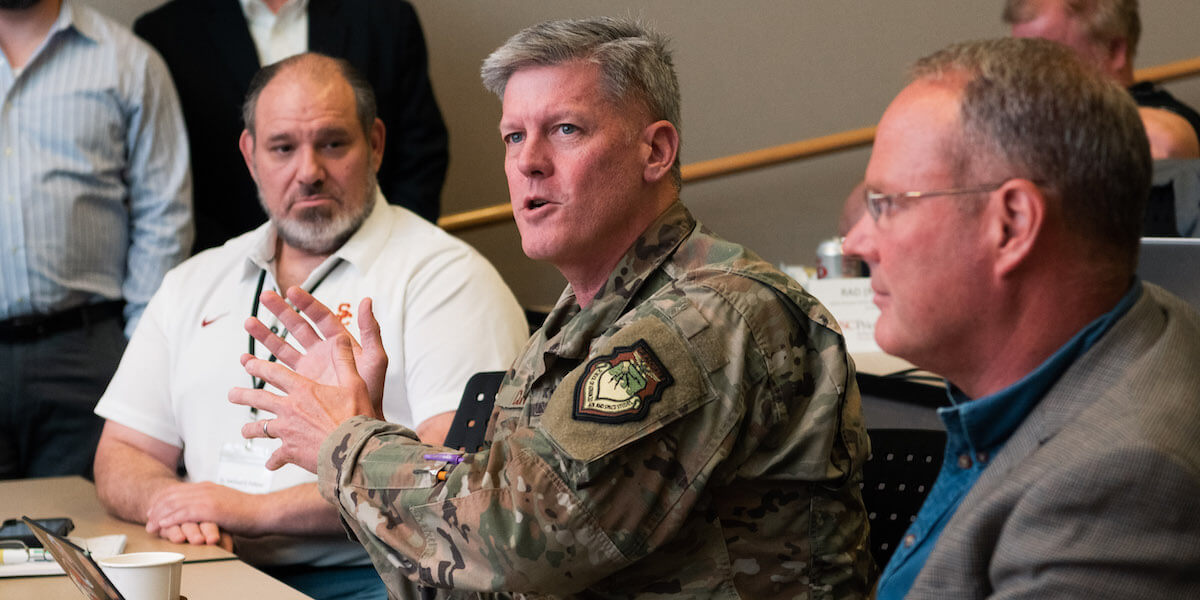
Executive Global Space and Defense Program (Credit: Hannah Benet)
Participants joined the program from across the country looking to learn how to better defend against international threats to the U.S. homeland and outer space.
To better understand how to address real-world defense challenges, students heard from guest speakers that included senior defense officials, military leaders and experts in defense policy and operations.
Military experts say incorporating professionals with a variety of security and defense backgrounds helps to build collaboration and ultimately strengthens military defense.
“After this course, one of the military professionals may personally and professionally know a senior person from Boeing so they can actually pick up the phone and say, look at what’s going on here internationally, do you have this on the shelf or what can we do to help enable and speed this process,” said Rear Admiral Victorino G. Mercado (ret.), MDAA’s academic innovation liaison to the project and former assistant secretary of defense for strategy, plans and capabilities at the U.S. Department of Defense.
Students completed the course with capstone projects designed to analyze the toughest engineering and policy problems while producing tangible solutions.
The group capstone project topics ranged from missile defense challenges, to how to respond to an attack on U.S. satellites and how to defend Guam.
Delivered as a hybrid class, students attended interactive lectures online via DEN@Viterbi and on-campus.
As countries continue developing next level hypersonic missiles that travel out of the atmosphere and into space, and North Korea tests intercontinental ballistic missiles, the U.S. Space Force has become a key component in the conversation of national and global security.
It’s a topic that also took center stage in the course that provided students with visits to Vandenberg Space Force Base and The Los Angeles Space Force Base.
“Understanding what’s new in academia and how we can apply that to what we do in space was extremely valuable and exactly what I was hoping to get from this experience,” said Colonel Heather Anderson with the U.S. Space Force. “It gives me a different strategic picture.”
Participants receive USC continuing education certificates and Continuing Education Units once they’ve successfully completed the course. Planning for the next Executive Program in Global Space and Defense has begun, with an anticipated launch of fall 2022.
Candace House Teixeira, Associate Dean for the USC Viterbi School of Engineering shares “ It is unique for an executive education program to bridge diverse academic areas, such as engineering and policy, with the real-time needs of the U.S. Military and industry partners. We look forward to years of continued program development in this area. This is just the beginning!”
“As a university, we are immersed in the future of the globe and that’s exactly what we are doing through this program by bringing an interdisciplinary approach to missile defense,” said Frank Zerunyan, USC Price director of executive education.
Published on May 6th, 2022
Last updated on May 6th, 2022




